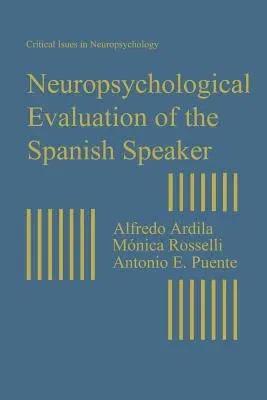Alfredo Ardila
(Author)Neuropsychological Evaluation of the Spanish Speaker (Softcover Reprint of the Original 1st 1994)Paperback - Softcover Reprint of the Original 1st 1994, 12 June 2013

Qty
1
Turbo
Ships in 2 - 3 days
In Stock
Free Delivery
Cash on Delivery
15 Days
Free Returns
Secure Checkout
Part of Series
Critical Issues in Neuropsychology
Print Length
201 pages
Language
English
Publisher
Springer
Date Published
12 Jun 2013
ISBN-10
1489914552
ISBN-13
9781489914552
Description
Product Details
Book Edition:
Softcover Reprint of the Original 1st 1994
Book Format:
Paperback
Country of Origin:
NL
Date Published:
12 June 2013
Dimensions:
23.39 x
15.6 x
1.17 cm
Genre:
Mentally Challenged
ISBN-10:
1489914552
ISBN-13:
9781489914552
Language:
English
Location:
New York, NY
Pages:
201
Publisher:
Weight:
308.44 gm

